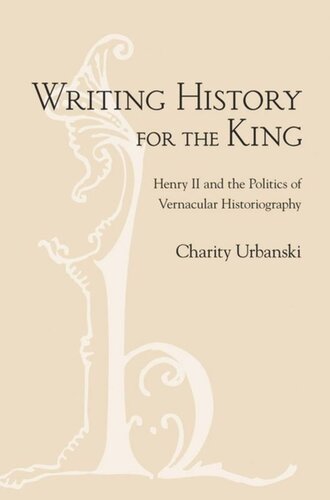

Most ebook files are in PDF format, so you can easily read them using various software such as Foxit Reader or directly on the Google Chrome browser.
Some ebook files are released by publishers in other formats such as .awz, .mobi, .epub, .fb2, etc. You may need to install specific software to read these formats on mobile/PC, such as Calibre.
Please read the tutorial at this link: https://ebookbell.com/faq
We offer FREE conversion to the popular formats you request; however, this may take some time. Therefore, right after payment, please email us, and we will try to provide the service as quickly as possible.
For some exceptional file formats or broken links (if any), please refrain from opening any disputes. Instead, email us first, and we will try to assist within a maximum of 6 hours.
EbookBell Team

4.0
76 reviewsWriting History for the King is at once a reassessment of the reign of Henry II of England (1133–1189) and an original contribution to our understanding of the rise of vernacular historiography in the high Middle Ages. Charity Urbanski focuses on two dynastic histories commissioned by Henry: Wace's Roman de Rou (c. 1160–1174) and Benoît de Sainte-Maure’s Chronique des ducs de Normandie (c. 1174–1189). In both cases, Henry adopted the new genre of vernacular historical writing in Old French verse in an effort to disseminate a royalist version of the past that would help secure a grip on power for himself and his children. Wace was the first to be commissioned, but in 1174 the king abruptly fired him, turning the task over to Benoît de Sainte-Maure.Urbanski examines these histories as part of a single enterprise intended to cement the king’s authority by enhancing the prestige of Henry II’s dynasty. In a close reading of Wace’s Rou, she shows that it presented a less than flattering picture of Henry’s predecessors, in effect challenging his policies and casting a shadow over the legitimacy of his rule. Benoît de Sainte-Maure’s Chronique, in contrast, mounted a staunchly royalist defense of Anglo-Norman kingship. Urbanski reads both works in the context of Henry’s reign, arguing that as part of his drive to curb baronial power he sought a history that would memorialize his dynasty and solidify its claim to England and Normandy.